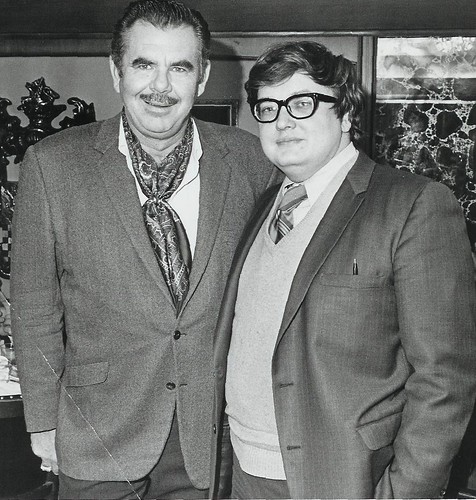
It goes without saying that Chris Jones' profile of Roger Ebert is marvelous: sensitive without being sappy, beautifully observed without being voyeuristic. And it's just one of the best profiles of a writer I've ever read, much more about the pure act of writing than about Ebert's specific interaction with the movies. Here's Jones on Ebert's growth as a blogger:
Reading it from its beginning is like watching an Aztec pyramid being built. At first, it's just a vessel for him to apologize to his fans for not being downstate. The original entries are short updates about his life and health and a few of his heart's wishes. Postcards and pebbles. They're followed by a smattering of Welcomes to Cyberspace. But slowly the journal picks up steam, as Ebert's strength and confidence and audience grow. You are the readers I have dreamed of, he writes. He is emboldened. He begins to write about more than movies; in fact, it sometimes seems as though he'd rather write about anything other than movies. The existence of an afterlife, the beauty of a full bookshelf, his liberalism and atheism and alcoholism, the health-care debate, Darwin, memories of departed friends and fights won and lost — more than five hundred thousand words of inner monologue have poured out of him, five hundred thousand words that probably wouldn't exist had he kept his other voice. Now some of his entries have thousands of comments, each of which he vets personally and to which he will often respond. It has become his life's work, building and maintaining this massive monument to written debate — argument is encouraged, so long as it's civil — and he spends several hours each night reclined in his chair, tending to his online oasis by lamplight. Out there, his voice is still his voice — not a reasonable facsimile of it, but his.
"It is saving me," he says through his speakers.
He calls up a journal entry to elaborate, because it's more efficient and time is precious:
When I am writing my problems become invisible and I am the same person I always was. All is well. I am as I should be.
That may be the purest lived expression of "what I do is me: for that I came" I've ever heard of. It's beautiful.